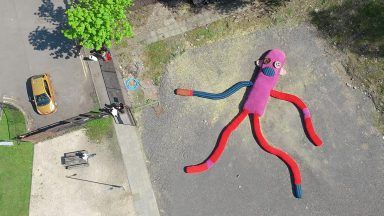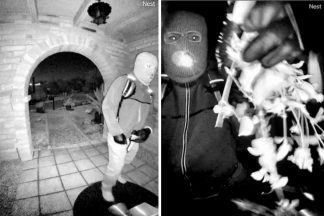British dog owners and walkers have been warned of a “flesh-eating” disease affecting pets, with new cases confirmed across the UK.
A number of cases have been reported this year in Wales, Scotland and the North of England.
It’s particularly prevalent at this time of year when the ground is soggy due to increased rainfall.
Here’s what to watch out for, to stop the deadly disorder developing on your four-legged friend.
What is Alabama rot?
Alabama rot, otherwise known as Cutaneous and Renal Glomerular Vasculopathy (CRGV), is a disease that affects dogs.
It damages the blood vessels in the skin and kidneys, which causes visible sores on the skin and can lead to severe organ dysfunction and ultimately kidney failure.
The cause of the disease is currently unknown, though research is ongoing.
Alabama rot was first identified in greyhounds in the United States in the 1980s
but there have been reports of the disease across the UK.
In 2012, just six cases were reported in the UK, but this number has continued to rise each year since.
Most reports come from pet owners who walk their dogs in the countryside, and most cases are reported during winter and spring.
Generally, cases are rare in the summer months compared to the colder months.
What are the symptoms?
The following are typical signs of Alabama rot:
- Skin sores, visible swelling, red patch or skin defects not caused by a known injury
- Skin lesions typically appear below the knee or elbow, and occasionally on the face or at the bottom of the chest or abdomen
- Changes in appetite – reduced appetite, drinking more, vomiting and lethargy are signs of acute kidney injury
- Remember, the majority of visible skin lesions will not be caused by Alabama rot disease, and most cases of kidney failure will be a result of another cause

What to do if your dog dog is showing signs of Alabama rot
The RSPCA has advised any pet owner concerned that their dog may be suffering should contact your vet immediately for further advice.
If it is Alabama rot, early recognition and aggressive management are likely to have the best results.
While it’s extremely difficult to give advice about how to avoid Alabama rot, the RSPCA recommends washing off all mud following a wet and muddy walk, especially through woodland.
For more information visit specialist vets Anderson Moore or the RSPCA website.
Follow STV News on WhatsApp
Scan the QR code on your mobile device for all the latest news from around the country




























